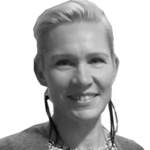Corporate governance
This section describes our corporate governance model including information on our governance bodies, management remuneration, insider administration, as well as financial control systems and risk management procedures.
Annual Report 2024
3 Apr 2025
Dovre Group Plc is a public limited company registered in Finland, with its headquarters in Espoo, Finland. In its decision-making and governance, Dovre Group complies with the laws and regulations applicable to Finnish listed companies, the company’s Articles of Association, and the Finnish Corporate Governance Code issued by the Finnish Securities Market Association. The Code is available on the Association’s website at www.cgfinland.fi. Dovre Group’s subsidiaries comply with local legislation.
CORPORATE GOVERNANCE DOCUMENTS
Remuneration Report 2024
3 Apr 2025
Corporate Governance Statement 2024
3 Apr 2025
Corporate Governance Statement 2023
8 Mar 2024
Remuneration Report 2023
8 Mar 2024
Remuneration Report 2022
8 Mar 2023
Corporate Governance Statement 2022
8 Mar 2024
Articles of Association (Unofficial translation)
18 Oct 2022
Code of Conduct
17 Oct 2022
Disclosure Policy
11 Oct 2022
Corporate Governance Statement 2021
18 Mar 2022
Corporate Governance Statement 2020
19 Mar 2021
Remuneration Policy
28 Apr 2020
Corporate Governance Statement 2019
4 Mar 2020
GOVERNANCE BODIES
Annual general meeting
The highest decision-making body in Dovre Group Plc is the General Meeting of shareholders. The Annual General Meeting is organized once a year on a date set by the Board of Directors and must be held within six (6) months of the end of the financial period. The Board of Directors may convene an Extraordinary General Meeting when necessary.
A shareholder has the right to put matters that fall within the competence of the General Meeting on the agenda of the Annual General Meeting, provided the shareholder makes a written request to the Board of Directors in time for the matter to be included in the notice of the meeting. Requests from the shareholders to put matters on the agenda shall be sent to Dovre Group’s Board of Directors to Dovre Group Plc headquarters together with an explanation or a draft solution.
The General Meeting decides on the following issues:
- Adoption of the income statement and balance sheet
- Use of the profit or loss shown on the balance sheet
- Discharging from liability the members of the Board of Directors and the CEO
- The number of members on the Board of Directors and their election
- Election of the auditor
- Remuneration of the Board of Directors and compensation of the auditor
- Raising or lowering the share capital
- Issue of shares or authorization given to the Board of Directors
- Amendment of the Articles of Association
Notice of a General Meeting shall be sent to the shareholders not earlier than three (3) months and not later than twenty-one (21) days before the meeting. The notice is published as a stock exchange bulletin and on Dovre Group’s website. Dovre Group may also publish a notice in Finnish daily newspaper(s). Candidates nominated for the Board of Directors are disclosed in the notice of the General Meeting, or in some other way after the publication of the notice and before the General Meeting, if the candidate has given his/her consent to the election and is supported by shareholders who account for at least 10% of the company’s shares. The company also announces the Board of Directors’ proposal for the company’s auditor.
The company aims to introduce all first-time Board candidates to the shareholders at the General Meeting that is convened for the purpose of the election of the Board.
Extraordinary General Meeting 2025
12 Jun 2025
Notice to the meeting | Minutes of the Meeting | Decisions of the Meeting |
Shareholder’s proposals | Board of Director’s proposals | CV Tomi Merenheimo | CV Ville Vuori |
Annual General Meeting 2025
29 Apr 2025
Notice to the meeting | Minutes of the Meeting | Decisions of the Meeting |
Shareholder’s proposals | Board of Director’s proposals | Review by the Acting CEO |
Extraordinary General Meeting 2024
16 Dec 2024
Notice to the Meeting | Minutes of the Meeting | Decisions of the Meeting |
Annual General Meeting 2024
4 Apr 2024
Notice to the meeting | Minutes of the Meeting | Decisions of the Meeting |
Presentation | Suvic Presentation |
Annual General Meeting 2023
30 Mar 2023
Notice to the meeting | Minutes of the Meeting | Decisions of the Meeting |
Annual General Meeting 2022
30 Mar 2022
Notice to the meeting | Minutes of the Meeting | Decisions of the Meeting |
Presentation | Suvic Presentation |
Annual General Meeting 2021
10 Jun 2021
Notice to the meeting | Minutes of the Meeting | Decisions of the Meeting |
Presentation |
Annual General Meeting 2020
28 Apr 2020
Notice to the meeting | Minutes of the Meeting | Decisions of the Meeting |
Annual General Meeting 2019
27 Mar 2019
Notice to the meeting | Minutes of the Meeting | Decisions of the Meeting |
CV Kristine Larneng |
Annual General Meeting 2018
28 Mar 2018
Notice to the meeting | Minutes of the Meeting | Decisions of the Meeting |
CV Svein Stavelin | CV Antti Manninen |
Board of Directors
Composition and term of office
In accordance with the Articles of Association, Dovre Group’s Board of Directors is composed of no less than three (3) and no more than eight (8) members. The term of the members of the Board of Directors lasts until the end of the Annual General Meeting following the election.
All members of the Board of Directors are elected at the Annual General Meeting. The Articles of Association do not specify an upper age limit for of the maximum numbers of terms of office of the members of the Board, and place no other restrictions on the authority of the Annual General Meeting to elect members to the Board. The Board selects a Chairman and a Vice Chairman among its members.
Duties and operation principles
Dovre Group Plc’s Board of Directors is responsible for the administration and proper organization of the company’s operations. The Board supervises the company’s operations and management, and decides on significant issues concerning the company’s strategy, organization, financing, and investments. The duties and responsibilities of the Board are determined in accordance with the Finnish Companies Act and the company’s Articles of Association. The Board prepares an annual charter that specifies the Board’s meeting procedures and duties.
The Board shall handle all matters that carry financial, operational, or principal importance.
Meeting procedures and self-evaluation
The Board of Directors convenes normally once a month according to an agreed schedule. The Board has not assigned its members any particular areas of business for monitoring. The CEO of the company acts as the presenting officer at the meetings. The Board shall evaluate its operations and working methods on a regular basis by conducting a self-evaluation once a year.
Remuneration and other benefits of the Board of Directors
The remuneration of the Board of Directors shall be determined on a yearly basis by the Annual General Meeting.
Diverse composition of the Board of Directors
The company considers diverse composition of the Board as an important asset. In selecting candidates to the Board, the company pays attention, amongst other things, to the candidates’ diverse and mutually complementary background, experience, and expertise, especially in international business. The company also aims to have, where possible, representatives of both genders on the Board.
Members of the Board of Directors

Ville Vuori
Chairman of the Board of Directors. B.Sc. (Mechanical Engineering). Board member since 12 June 2025. Independent of the company and significant shareholders
Ville Vuori's CV


Ilari Koskelo
Vice Chairman of the Board of Directors. M. Sc. (Management). Board member since 26 February 2008. Independent of the company and significant shareholders
Ilari Koskelo's CV


Tomi Merenheimo
Member of the Board of Directors. Master of Laws. Board member since 12 June 2025. Independent of the company and significant shareholders
Tomi Merenheimo's CV

Executive team
Renewable energy – Suvic
Remuneration
The Annual General Meeting decides on the compensation of the Board of Directors. The Board decides on the compensation of the CEO and the Group Executive Team. The compensation of the management of the Group’s business areas is based on the so-called one-over-one principle whereby the compensation decision must be approved by the supervisor of the employee’s direct supervisor. In addition to normal salary, bonus and option programs are used in the Group.
Remuneration of the Board of Directors
The Annual General Meeting held on April 29, 2025, decided that the Chairman of the Board be paid EUR 35,000, Vice Chairman EUR 30,000, and each other member of the Board EUR 25,000 for the term which will last to the next Annual General Meeting. Actual travelling expenses are compensated as incurred. Remuneration was decided to pay in cash.
Remuneration of the members of the Board of Directors in 2024:
| Member | Annual remuneration, 1000 EUR |
|---|---|
| Svein Stavelin (Chairman) | 40 |
| Koskelo Ilari (Vice Chairman) | 33 |
| Manninen Antti | 25 |
| Sanna Outa-Ollila | 25 |
| Total | 123 |
Remuneration of the CEO
The Board of Directors decides on the remuneration of the CEO. The terms and conditions of employment of the CEO are approved by the Board and specified in writing.
The service terms and conditions of the CEO until December 16th 2024, Arve Jensen, comprised of an annual salary (including holiday pay, and car and phone benefits) of NOK 2,179,485 (approx. EUR 187 thousand) and a performance-based bonus decided by the Board. Arve Jensen had the same pension and personnel insurance as the other company employees in Norway. The contract did not specify the CEO’s retirement age. It was possible to terminate the contract by either party by giving six (6) months’ notice. The contract did not include any additional severance payment to the CEO in case the company had decided to terminate the employment contract.
The CEO’s bonus was based on the company’s or its individual units’ performance and profitability or on the successful completion of organizational measures. These objectives were specified annually. The STI part of the plan was paid in cash and the objectives were defined annually. The LTI part was a fully equity settled share-based payment transaction or was to be paid in cash subject to Board decision and the objectives were defined annually.
The company’s acting CEO is currently Sanna Outa-Ollila. She is not being paid a salary for the position. The remuneration is based on a separate agreement between Atuo Oy (a company wholly owned by Outa-Ollila) and Dovre Group Plc. The agreement defines an hourly price defined for the CEO’s services.
In 2024, CEO Arve Jensen’s total compensation was EUR 274 thousand. The amount includes STI performance bonus for 2023 EUR 87 thousand.
Remuneration of the Group Executive Team
The Group Executive Team’s remuneration consists of total salary or fee (including salary or fee in money and typical fringe benefits such as car and phone) as well as long- and short-term incentives as decided by the Board of Directors. Short-term incentives include a yearly performance-based bonus decided by the Board. Long-term incentives include yearly performance-based share-based incentive plans, for which all members of the Group Executive Team are eligible except for CFO. Board decides on long term incentive plans. The Group has not taken out any additional pension insurance for the members of the Group Executive Team.
The Board approves annually the terms and criteria of the Group Executive Team’s short-term incentives (or bonuses) Any bonuses are based on the achievement of financial targets, such as operating result and net sales and other related targets, on either Group and/or business unit level. In addition, members of the Group Executive Team may have either individual or team objectives.
In 2024, salaries, bonuses, and fringe benefits paid to Group Executive Team members (excluding CEO Arve Jensen) totaled EUR 262 thousand. This amount includes short-term incentive bonuses totaling EUR 45 thousand.
Long-term incentive plans for key personnel (option plans)
At the end of December 2024, Dovre Group did not have any option plans.
The company’s Board of Directors has an authorization granted by the Annual General Meeting held on April 29, 2025, to decide on the issuance of new shares and the granting of option rights and other special rights entitling to shares. The authorization is valid until June 30, 2026. In accordance with the resolution of the Annual General Meeting, the Board may use the authorization, among other things, for the company’s incentive programs. The Board may issue a maximum of 10,100,000 shares by virtue of the authorization, and the Board may use the authorization in one or more installments.
Auditor
According to the Articles of Association, Dovre Group has one Auditor who shall be an audit firm. The term of the auditors expires at the end of the first Annual General Meeting following their selection. The Board’s proposal for the auditor is disclosed in the notice of the General Meeting.
The primary purpose of an audit is to verify that the financial statements give accurate and adequate information concerning the Group’s result and financial position for the financial period. In addition, the auditors report to the Board of Directors on the ongoing auditing of administration and operations. The Annual General Meeting held on April 29, 2025 elected the Authorized Public Accountant entity BDO Ltd as the Company’s auditor, with Authorized Public Accountant Henrik Juth as the principal auditor.
Sustainability Reporting Assurer
According to the Corporate Sustainability Reporting Directive (CSRD), Dovre Group has one Sustainability Reporting Assurer. The term of the sustainability reporting assurer expires at the end of the first Annual General Meeting following their selection. The Board’s proposal for the sustainability reporting assurer is disclosed in the notice of the General Meeting.
The primary purpose of the sustainability reporting assurer is to verify that the sustainability report provides accurate and sufficient information about the Group’s sustainability matters for the reporting period. The Annual General Meeting held on April 29, 2025 elected the sustainability audit firm BDO Oy as the Company’s sustainability reporting assurer, with Authorized Public Accountant and Authorized Sustainability Auditor Henrik Juth as the principal sustainability reporting assurer.
INSIDER ADMINISTRATION
Dovre Group (“Company”) complies with the applicable legislation, the standards of the Finnish Financial Supervisory Authority as well as NASDAQ Helsinki Ltd.’s Guidelines for Insiders.
The list of insiders includes, by virtue of their position, Dovre Group’s management personnel (the members of the Company’s Board of Directors, the CEO, the members of the Group Executive Team and the Company’s subsidiary Suvic Oy’s Board members and CEO) and certain other persons working in the knowledge core of Dovre Group who, based on the tasks they perform, have better knowledge of the Company than the market in general. These persons are typically persons who prepare an interim report or annual financial statements, persons responsible for the Company’s finances, financial reporting or communication, or persons who have access to such information, as well as some other persons working in managerial positions in the Company.
The Company also keeps a project- or event-specific insider list of all persons who have access to insider information and who work for the Company based on an employment contract or otherwise perform tasks through which they have access to insider information. Persons who participate in the planning and preparation of projects or events dealing with insider information, such as mergers and acquisitions, are considered to be Project- or event-specific insiders. A project-specific insider may not trade or carry out other transactions with the Company’s financial instruments during the project.
In accordance with current legislation, persons discharging managerial responsibilities in Dovre Group as well as their closely associated persons are obliged to notify the company and the FSA of every transaction in the company’s financial instruments. The notification obligation applies to all transactions once a total amount of EUR 20,000 has been reached within a calendar year. Dovre Group will disclose all such transaction notifications as stock exchange bulletins within three (3) business days of the date of transaction. The stock exchange bulletins are kept available on the company website for at least five (5) years and can be found in the Releases and events page. The aggregated holding figures presented below include also changes that do not exceed the threshold of EUR 20,000.
| Name | Role | Shares |
| Vuori Ville | Chairman of the Board | 0 |
| Koskelo Ilari | Vice Chairman of the Board | 7 674 609 |
| Merenheimo Tomi | Member of the Board | 0 |
| Outa-Ollila Sanna | Acting CEO | 55 392 |
| Sten Hans | Other senior company executive | 0 |
| Vesanen Ville | CEO and Chairman of the Board (Suvic) | 1 098 319 |
| Norrkniivilä Jaakko | Member of the Board (Suvic) | 400 000 |
| Räisänen Janne | Member of the Board (Suvic) | 1 118 191 |
| Total | 10 346 511 |
Persons discharging managerial responsibilities in the Company may not trade in any financial instruments in the Company during a closed period of 30 calendar days before the announcement of the Company’s Half-Year Financial Report, Annual Financial Statements, or Q1 and Q3 Trading Statements. In addition to persons discharging managerial responsibilities in the Company, the trading restriction applies to the Company’s employees participating in the preparation, drawing-up, and disclosure of the Company’s financial reports.
CONTROL SYSTEMS & RISK MANAGEMENT
Internal audit
The Group has no separate internal audit organization. The establishment of an internal audit organization has not been deemed necessary due to the size of the company. The Group’s Executive Team assesses and ensures the sufficiency and effectiveness of the Group’s internal control, as well as supports the Board with its monitoring responsibility.
Risk management
The Group’s risk management is guided by legal requirements, business requirements set by shareholders of the company, and the expectations of customers, personnel, and other important stakeholders. The goal of risk management is to acknowledge and identify systematically and comprehensibly any risks relating to the company’s operations and to make sure that all such risks are appropriately accounted for when making business decisions.
The Group’s risk management procedures support the achievement of the Group’s strategic goals and seeks to ensure the continuity of the Group’s business operations. The Group takes risks that are a natural part of its strategy and objectives. The Group is not ready to take risks that might endanger the continuity of its operations or be uncontrollable or that may significantly harm the Group’s operations.
In accordance with the Group’s risk management procedures, the Board of Directors receives an annual report of the most significant risks facing the Group. The Board analyses the risks from the point of view of shareholder value.
The company’s risk management process includes an annual identification and analysis of risks pertaining to financial reporting. In addition, the company seeks to analyze and report all new risks immediately as soon as they have been identified. Taking into account the extent of the Group’s business operations, the most significant risks pertaining to the reliability of financial reporting relate to revenue recognition, impairment testing (including goodwill), and tax reporting.
Financial reporting controls
The purpose of the Group’s internal control is to support the implementation of the Group’s strategy and to ensure that the Group complies with all relevant rules and regulations. The Group’s internal control framework is based on the Dovre Group Authorization Matrix, which specifies the authority and the responsibilities of the Group’s management. The Authorization Matrix is approved by the Board of Directors, which also acts as the highest supervisory body of the Group’s internal control. The implementation of internal control measures is supervised primarily by the CEO and CFO, who report to the Board.
The ultimate responsibility for accounting and financial administration lies with Dovre Group’s Board of Directors. The Board is responsible for internal control, and the CEO is responsible for the day-to-day organization and monitoring of the control system. The steering and monitoring of business operations is based on the reporting and business planning system that covers the entire Group. The CEO and CFO report monthly to the Board and the Group Executive Team on the Group’s financial situation and development.
The purpose of financial reporting is to ensure that all assets and liabilities in the financial statements belong to the company; that all rights and liabilities of the company are presented in the financial statements; that items in the financial statements have been classified, disclosed, and described correctly; that assets, liabilities, income, and expenditure are entered in the financial statements at the correct amounts; that all transactions during the reporting period are included in the accounts; that transactions entered in the accounts are factual transactions; and that assets have been secured.
Control functions
The correctness and reliability of financial reporting are ensured through compliance with Group policies and guidelines. Control functions that ensure the correctness of financial reporting include controls related to accounting transactions, to the selection of and compliance with the accounting principles, to information systems, and to fraud or malpractice.
Revenue recognition is supervised by the CFO and is based on the required sale and delivery documents.
The Group’s bad debt provision is reviewed monthly. Any eventual bad debt provisions are based on the aging of trade receivables per sales company.
The Group’s goodwill is tested for impairment at the end of each financial year on the balance sheet date. Key variables used in the calculations are net sales growth and the estimated change of profit margin. In addition, indications of impairment are monitored regularly. If indications of impairment are detected, a separate testing is performed.
The performance of business operations and attainment of annual goals is assessed monthly in Group Executive Team and Board meetings. Monthly management and Board reporting includes both the actual and the estimated results compared to the budget and the actual results of previous periods. Financial reports generated for the management are used for monitoring certain key indicators associated with the development of sales, profitability, and trade receivables on a monthly basis.
In accordance with its strategy, Dovre Group may complement its organic growth with acquisitions. In making acquisitions, the Group follows due diligence and utilizes its internal competence together with external advisors in the planning phase (e.g. due diligence), takeover phase, and when integrating acquired functions into the Group’s operations.




